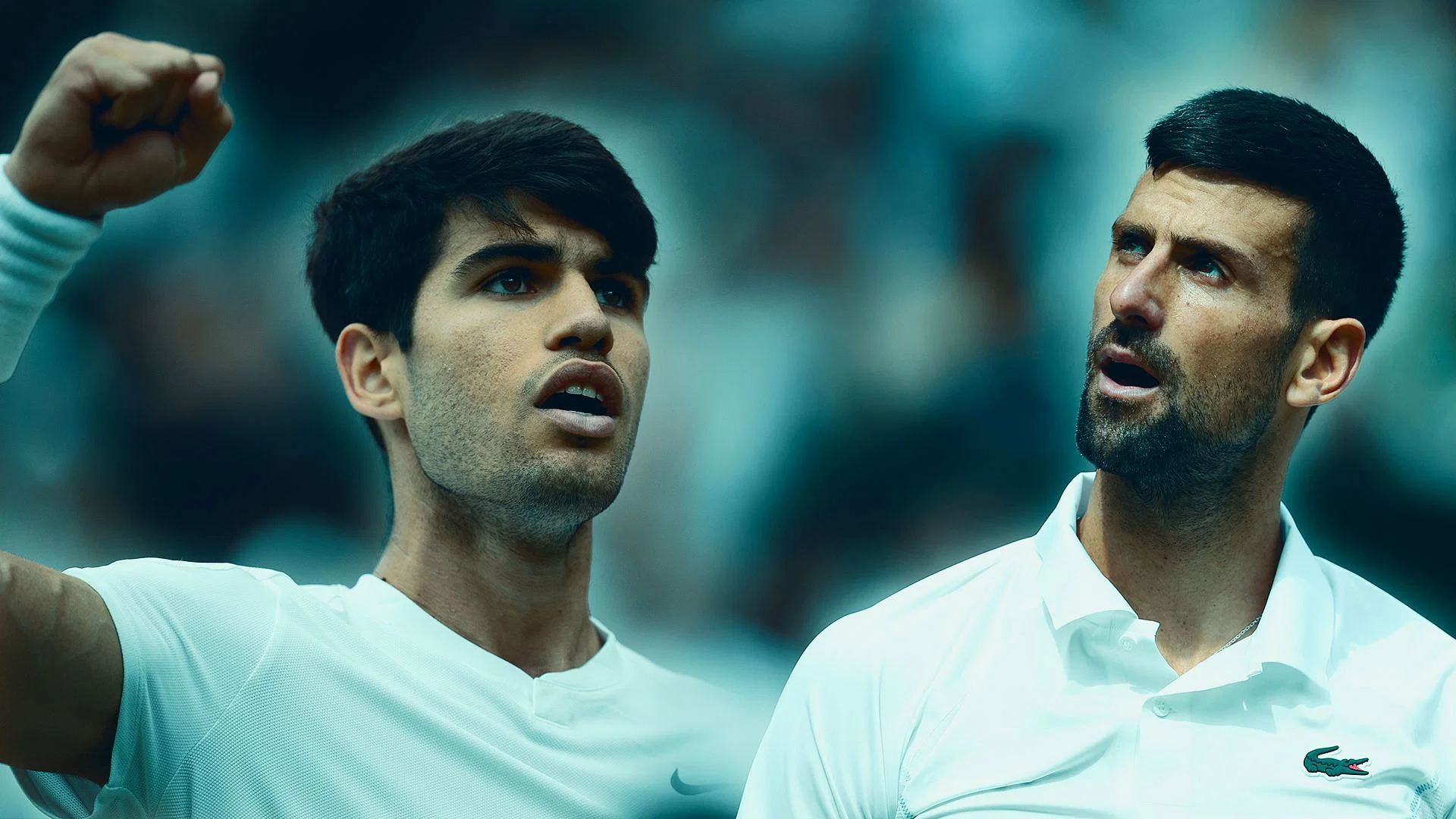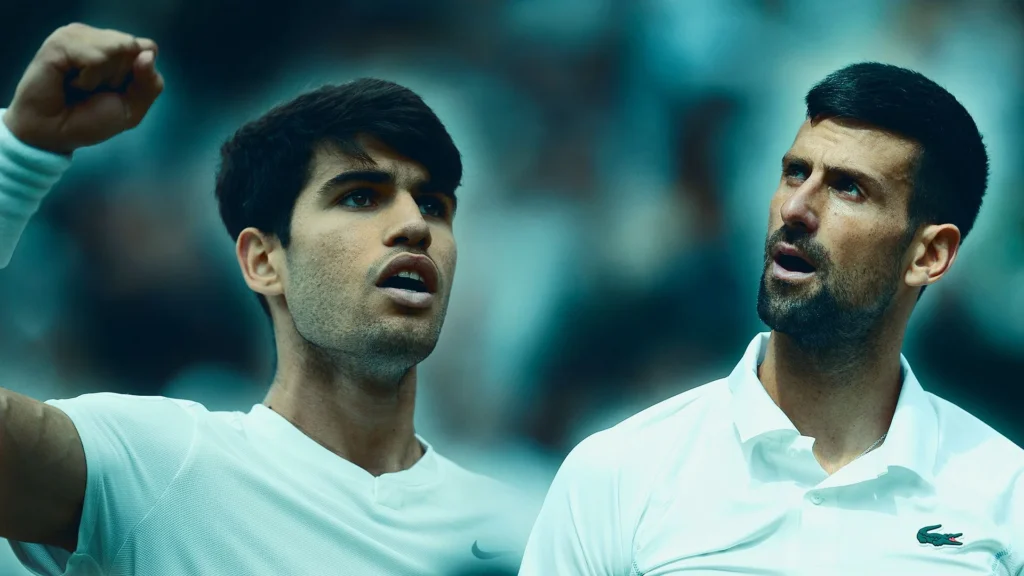

Novak Djokovic’s Strategic Mastery: Turning Wimbledon Defeat into Olympic Gold Victory Over Carlos Alcaraz
Novak Djokovic’s triumph over Carlos Alcaraz at the Paris Olympics, just three weeks after his devastating loss to the same opponent in the Wimbledon 2024 final, is a testament to his resilience and strategic prowess. The Serbian tennis legend showcased a remarkable ability to adapt and refine his game, turning what could have been a lingering disappointment into a golden moment on the Olympic stage. Here’s an in-depth look at what Djokovic did differently to secure his victory.
Mental Resilience and FocusThe psychological aspect of Djokovic’s preparation played a crucial role in his success. After the Wimbledon loss, Djokovic openly discussed the importance of mental resilience. Instead of dwelling on the defeat, he used it as a learning experience. This mental shift was evident in Paris, where Djokovic displayed unparalleled focus and composure, particularly in high-pressure situations. By maintaining a positive mindset and channeling his energy into preparation, he transformed a past setback into motivation.
Tactical AdjustmentsDjokovic is renowned for his ability to analyze his opponents and adapt his game plan accordingly. Against Alcaraz, who has rapidly ascended the ranks with his aggressive baseline play and powerful forehand, Djokovic implemented several key tactical adjustments:
- Improved Return of Serve: At Wimbledon, Alcaraz’s serve had been a significant weapon. In Paris, Djokovic anticipated and read Alcaraz’s serves with greater precision, allowing him to neutralize one of his opponent’s key advantages.
- Net Play and Short Points: Djokovic strategically incorporated more net play, forcing Alcaraz into uncomfortable positions. By shortening points and avoiding prolonged baseline rallies where Alcaraz excelled, Djokovic disrupted his rhythm and dictated the pace of the match.
- Variation and Spin: Djokovic utilized a variety of spins and angles, particularly with his backhand slice, to break Alcaraz’s powerful baseline rhythm. This variation kept Alcaraz guessing and prevented him from settling into a consistent groove.
Physical Conditioning
Physical fitness has always been a cornerstone of Djokovic’s game. After Wimbledon, Djokovic intensified his training regimen, focusing on endurance and agility. This enhanced conditioning was crucial in Paris, where the demands of the Olympic schedule required peak physical performance. Djokovic’s superior fitness allowed him to maintain a high level of play throughout the match, particularly in the crucial later stages.
Serve ImprovementOne of the most noticeable differences in Djokovic’s game was the improvement in his serve. In the Wimbledon final, his serve had faltered at critical moments. In Paris, Djokovic’s serve was a weapon. He served with greater precision, variety, and speed, winning crucial free points and setting up aggressive play on his terms. This improvement not only gave him an edge in service games but also bolstered his confidence.
Psychological WarfareDjokovic is a master of psychological warfare on the court. In Paris, he used his experience and presence to put pressure on Alcaraz. By staying calm and composed, even when facing break points or challenging situations, Djokovic projected an aura of invincibility. This psychological edge often led to unforced errors from Alcaraz, who felt the weight of playing against a seasoned champion.
Learning from LossesThe hallmark of a great champion is the ability to learn from defeats. Djokovic’s team conducted an exhaustive analysis of the Wimbledon match, identifying specific areas for improvement. This meticulous preparation was evident in his Olympic performance, where he effectively countered Alcaraz’s strengths and exploited his weaknesses.
ConclusionNovak Djokovic’s victory over Carlos Alcaraz at the Paris Olympics, coming so soon after his Wimbledon defeat, underscores his status as one of the greatest tennis players of all time. By addressing the tactical, physical, and psychological aspects of his game, Djokovic not only overcame a formidable opponent but also demonstrated the relentless pursuit of excellence that defines his career. This win is a powerful reminder that in sports, as in life, setbacks can be transformed into stepping stones for greater achievements.
Leave a Reply